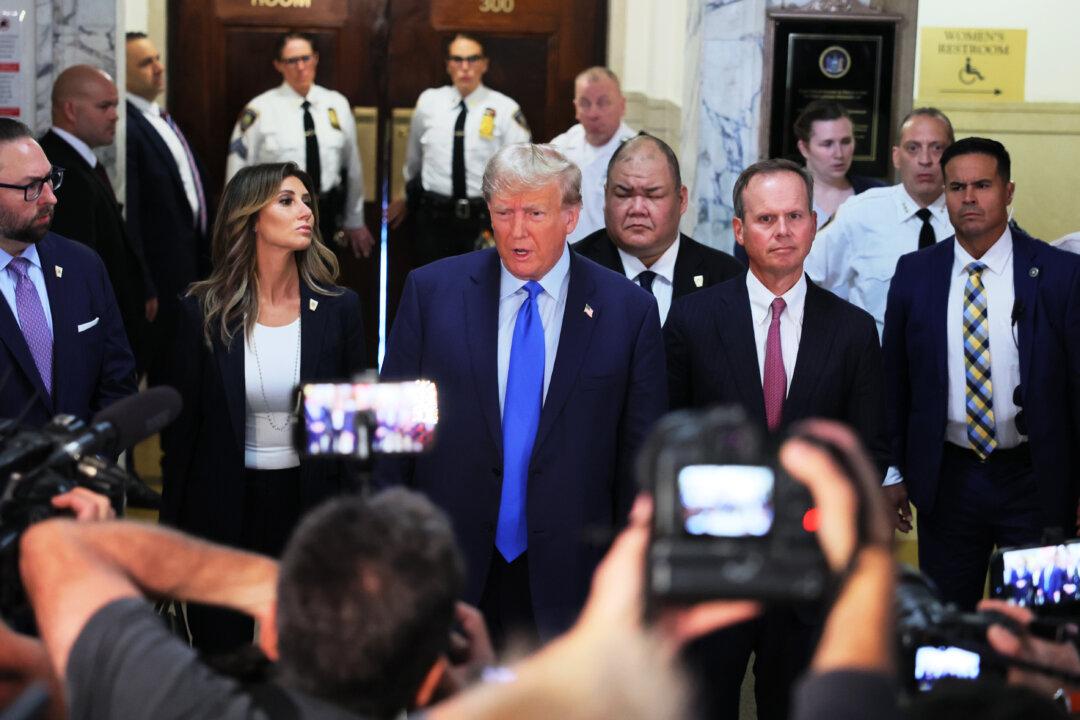Former President Donald Trump has filed a motion asking a New York state judge to dismiss a criminal case brought against him by Manhattan District Attorney Alvin Bragg.
His attorneys argue that the case is election interference, pointing to the fact that a grand jury was only seated weeks after President Trump announced last fall that he would be running for office once again.





